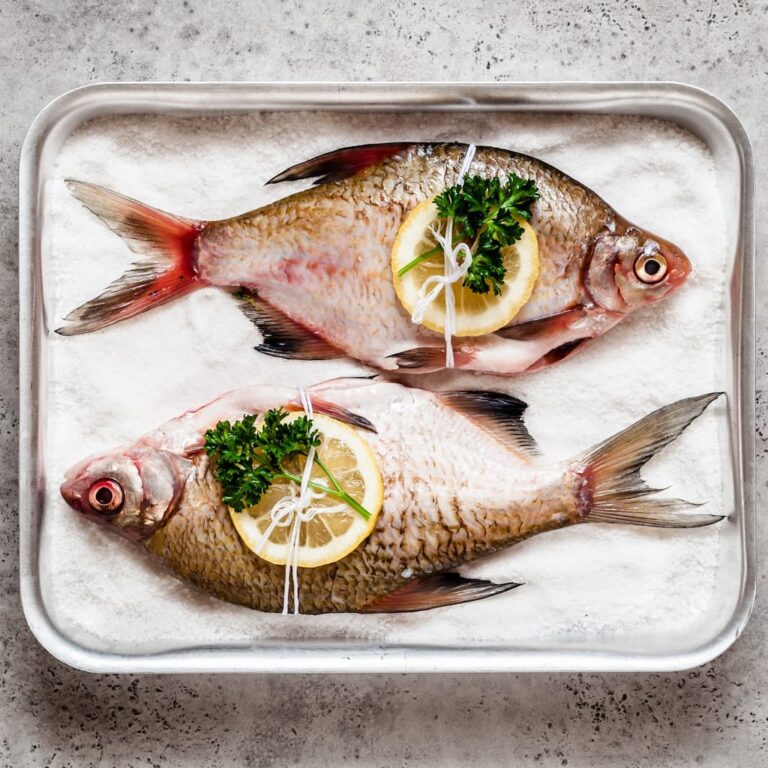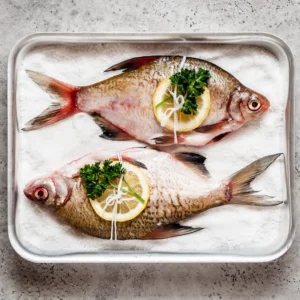How to Cook Freshwater Bream: Delicious Recipes and Tips

Are you ready to embark on a culinary adventure with Freshwater Bream? While this bottom feeder may not be everyone’s favorite due to its subtle flavor and numerous bones, we believe that with the right cooking techniques and recipes, you can transform it into a delightful and satisfying dish.
Whether you prefer crispy croquettes, oven-baked creations, or savoury sauces, we have you covered. Prepare to tantalise your taste buds and impress your guests with these delicious Freshwater Bream recipes.

The Versatile Freshwater Bream
Freshwater Bream, commonly found in lakes, rivers, and streams, is a frequent catch for anglers and a popular choice for personal consumption. This fish offers many culinary possibilities despite its challenging nature and bony structure. You can enhance its taste and texture by exploring different cooking techniques and creating mouth-watering dishes that delight your palate.
Overcoming the Fishy Challenge
Due to its reputation for having a “fishy” taste and an abundance of bones, Freshwater Bream requires specific cooking methods to make it enjoyable. Many recipes transform Bream into croquettes or incorporate it into flavorful sauces to mask the fishy flavour. These techniques also help remove the tiny bones, ensuring a smooth dining experience. By experimenting with these recipes, you can turn the freshwater bream into a delightful culinary creation that even the most sceptical of eaters will enjoy.
Crispy Croquettes and Baked Delights
One popular way to cook freshwater bream is by transforming it into crispy croquettes. Start by preparing a mixture with finely shredded Bream meat, seasonings, and binding ingredients such as breadcrumbs and eggs. Shape the mixture into small patties and lightly fry them until golden brown. Serve these delectable croquettes with a tangy tartar sauce and a squeeze of fresh lemon for a burst of flavour.
If you prefer a healthier alternative, consider baking your freshwater bream. Season the fish with herbs, spices, and a drizzle of olive oil. Please place it in a preheated oven and cook until the flesh becomes tender and flaky. Baking the fish allows the flavours to infuse gently, resulting in a moist and succulent dish that pairs well with steamed vegetables or a side of herbed rice.
Savory Sauces and Garnishes
Sauces play a vital role in elevating the taste of Freshwater Bream. Prepare a delightful sauce to accompany your fish, such as a classic beurre blanc or a creamy dill sauce. These sauces complement the delicate flavour of the bream and add a touch of richness to each bite. Also, could you consider garnishing your dish with fresh herbs, lemon slices, or a sprinkle of toasted almonds for an extra layer of texture and visual appeal?
Nutritional Benefits of Freshwater Bream
Apart from its culinary potential, Freshwater Bream also offers several nutritional benefits. With a moderate fat content and a good source of protein, it contributes to a balanced diet. A 100g serving of freshwater bream provides approximately 16g of protein, 0g of carbohydrates, and 4g of lipids, making it a nutrient-rich option for those seeking a healthy and satisfying meal. Additionally, with a relatively low-calorie count of 100 kcal per serving, freshwater bream can be enjoyed as part of a well-rounded diet.
In conclusion, cooking freshwater bream opens up a world of culinary possibilities. You can turn this seemingly ordinary fish into a delectable masterpiece by employing various techniques such as creating crispy croquettes, baking the fish to perfection, and preparing flavorful sauces. Don’t let its reputation deter you—embrace the challenge and discover the hidden potential of freshwater bream. So, next time you cast your line and reel in this prized catch, you’ll know exactly how to elevate it to a whole new level of gastronomic delight.





